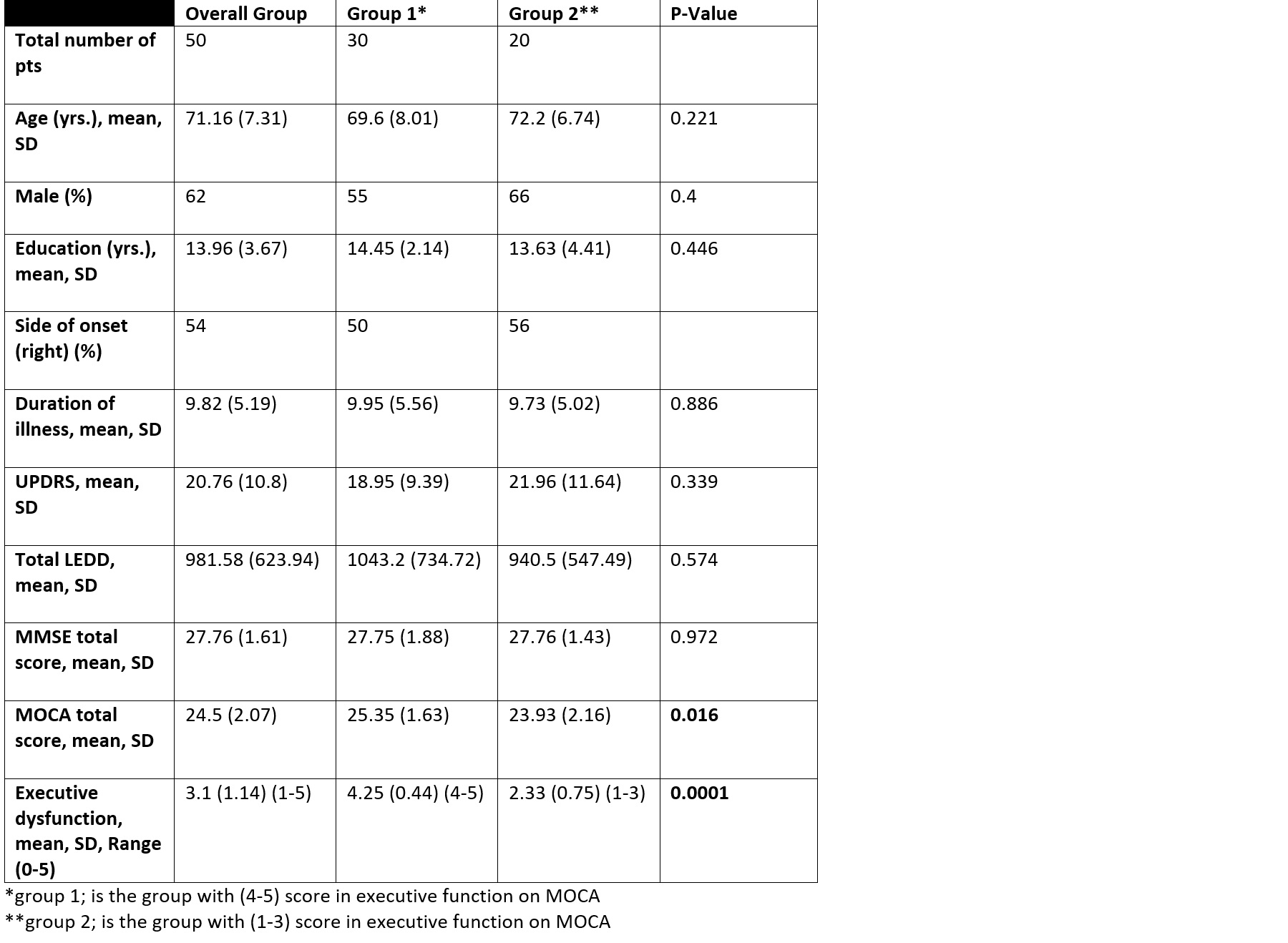Session Information
Date: Wednesday, June 7, 2017
Session Title: Parkinson's Disease: Cognition
Session Time: 1:15pm-2:45pm
Location: Exhibit Hall C
Objective: We sought to assess decisional capacity (DC) for Goals of Care (GOC) using the MacArthur Competence Assessment Tool (MacCAT) for Parkinson’s disease (PD) patients with cognitive complaints or mild cognitive difficulties (MCI).
Background: Advance Care Planning allows individuals to document their wishes if they become incapable of consenting to or forgoing future treatment. By contrast, (GOC) documents the individuals’ goals for treatment and location of care (1). Individuals indicate whether they want life sustaining treatment, medical care only or comfort care. For PD patients with cognitive decline, neuro-behavioral complications are common and could impact (DC) (2). DC to consent to research has been studied in PD, where it has been shown that PD patients with MCI may have compromised capacity to understand aspects of the consent process (2). Determination of GOC requires conversation that hasn’t been studied in PD. The MacCAT is a validated tool examining the ability of patients to consent to treatment. It provides ratings for four constituents related to “capacity to consent” including: understanding, appreciation, reasoning and expressing a choice. We hypothesized that cognitive impairment might affect capacity to consent to GOC as assessed by the MacCAT.
Methods: Fifty consecutive PD patients were recruited from the Movement Disorders Program. Mini Mental Status Examination(MMSE), Montreal Cognitive Assessment(MoCA) and the MacArthur Competency Assessment Test(MacCAT) for GOC were administered.
Results: Overall baseline characteristics and for those with and without executive dysfunction are in [table 1] and were not significantly different. The overall MacCAT score correlated with both the MoCA and MMSE (R = 0.551, 0.532, p 0.001, 0.001). MoCA and MMSE were correlated with understanding, appreciation and reasoning but not with expressing choice.
Conclusions: Physicians should be aware that cognitive complaints may impact patients’ capacity to understand, appreciate and reason. This could impact their ability to decide what level of care is appropriate and, therefore, we recommend inquiring about the patient’s wishes before cognitive complaints arise.
References: 1) (http://www.albertahealthservices.ca/frm-103547.pdf Last accessed 09/23/2016) 2) Moelter ST, Weintraub D, Mace L, et al. Research consent capacity varies with executive function and memory in Parkinson disease. Movement disorders: official journal of the Movement Disorder Society 2016; 31:414-417.
To cite this abstract in AMA style:
M. Abu Snineh, R. Camicioli, J. Miyasaki. Decisional capacity for Goals of Care in Parkinson’s Disease with Cognitive Concerns [abstract]. Mov Disord. 2017; 32 (suppl 2). https://www.mdsabstracts.org/abstract/decisional-capacity-for-goals-of-care-in-parkinsons-disease-with-cognitive-concerns/. Accessed February 12, 2026.« Back to 2017 International Congress
MDS Abstracts - https://www.mdsabstracts.org/abstract/decisional-capacity-for-goals-of-care-in-parkinsons-disease-with-cognitive-concerns/

